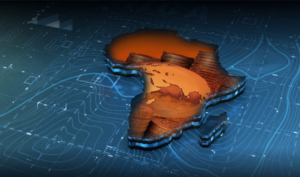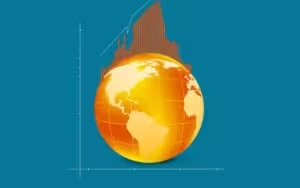
As 2024 unfolds, Africa’s economic landscape is at a critical juncture, with a blend of challenges and emerging opportunities shaping its future. The continent, home to some of the world’s fastest-growing economies, is navigating the global economic turbulence caused by post-pandemic recovery efforts, inflationary pressures, and shifting geopolitical dynamics.
Inflation remains a significant challenge across many African countries. Rising food and fuel prices, driven by global supply chain disruptions, have put a strain on household budgets. Countries like Nigeria, Ghana, and Ethiopia have experienced particularly high inflation rates, exacerbating existing economic difficulties. Governments are grappling with how to contain these price hikes while balancing their fiscal responsibilities.
In response, central banks across the continent have raised interest rates, but these measures have brought their own set of challenges. Higher borrowing costs are impacting businesses, especially small and medium-sized enterprises (SMEs), which form the backbone of many African economies. This creates a delicate balancing act for policymakers as they work to maintain economic stability.

Despite these challenges, opportunities are emerging in Africa’s growing digital and green economies. digital transformation sweeping the continent, accelerated by the pandemic, continues to unlock new business models and economic opportunities. Countries like Kenya, Rwanda, and South Africa are leading the charge in the fintech space, creating a burgeoning digital financial ecosystem that has the potential to provide greater financial inclusion for millions.
The global shift towards sustainability is giving rise to green energy investments in Africa. With its abundant natural resources—such as solar, wind, and hydropower—the continent is well-positioned to be a leader in renewable energy production. Countries like Morocco and South Africa have already made significant strides in renewable energy, while others are starting to catch up.
The implementation of the African Continental Free Trade Area (AfCFTA) continues to be a beacon of hope for boosting intra-African trade and economic growth. With the potential to create the largest free trade area in the world, AfCFTA is expected to foster greater regional integration, streamline trade processes, and reduce barriers that have historically hindered trade between African nations.
However, challenges remain in fully operationalizing the agreement. Infrastructure deficits, regulatory differences, and political instability in some regions are impeding progress. Nonetheless, there is optimism that AfCFTA, once fully implemented, will transform Africa’s economic landscape, creating jobs and reducing dependency on external markets.
Foreign investment continues to play a crucial role in Africa’s economic development, particularly in sectors like infrastructure, technology, and natural resources. China remains a dominant player in infrastructure financing across Africa, but the increasing presence of other international players, including the United States and European Union, is diversifying the investment landscape.

However, mounting debt levels are a growing concern for several African countries. Countries like Zambia and Kenya are grappling with rising public debt, which threatens to stifle economic growth. Governments are being urged to implement fiscal reforms, improve governance, and seek debt relief strategies to ensure long-term sustainability.
The need for economic diversification has never been more apparent. Many African countries, particularly those heavily reliant on commodities like oil, minerals, and agriculture, have realized the vulnerability of such dependence. Efforts to diversify into manufacturing, technology, and services are gaining traction across the continent. Nigeria, for example, is looking to diversify away from its reliance on oil, investing more in its tech ecosystem, agriculture, and creative industries.
The road ahead for Africa’s economy in 2024 is filled with both challenges and opportunities. While inflation, debt, and geopolitical uncertainties pose hurdles, the continent’s potential in digital transformation, green energy, and intra-African trade offers a promising path forward. With the right policies and international cooperation, Africa’s economy can continue its upward trajectory, fostering inclusive growth and creating a more sustainable future for its people.
Ennywealth



